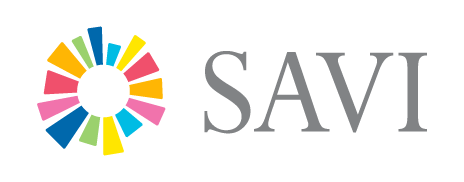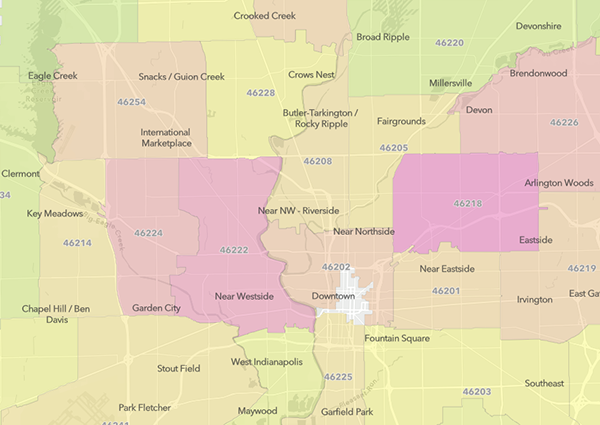The Polis Center and its SAVI community information system received a U.S. Census Bureau Open Data for Good Grand Challenge award.
The award acknowledges the center’s SAVI COVID-19 Impact Index, which measures the health and economic impact of COVID-19 on each ZIP code in Marion County, Indiana. The Health & COVID-19 award category specifically recognizes exceptional digital tools related to the pandemic and public health that ingest, harmonize, report, or analyze COVID-19 data to help local stakeholders better understand the pandemic and provide critical information to make key decisions.
The SAVI COVID-19 Impact Index combines local data on COVID-19 cases, unemployment claims, and rental assistance applications with federal open data including American Community Survey data and CDC Places data. When combined, these data measure the layering effects of pre-existing vulnerabilities and the health and economic impacts of COVID-19 for use by community organizations, policy makers, and health researchers.
The tool is particularly useful for funders determining how best to deploy resources, grant writers responsible for finding program support, and residents interested in identifying types of needs in the community. The tool has guided decision-making in the Indianapolis community including:
- The City of Indianapolis considered the results of this index when awarding Community Development Block Grant funding to communities. Martindale Brightwood, a neighborhood highlighted in the index as experiencing particularly traumatic economic impacts from the pandemic and having underlying socioeconomic and health risk factors, was awarded $3.5 million in funding to support economic and equity initiatives.
- Indianapolis City-County Councilors used this index to see how multiple dimensions of this crisis intersect and facilitate the equitable distribution of resources. Detailed data available in the tool helped councilors focus programming and funding priorities within each of the 25 districts to address inequities.
- Community leaders from neighborhoods most heavily impacted by the pandemic used the data to inform action plans. As part of a cohort of leaders from community-based organizations, they participated in online workshops to digest and discuss this data. They then incorporated the information into action plans that informed their work to address the crisis of the pandemic and the underlying issues of inequality that were already present in these communities.
The COVID-19 Impact Index was created as part of SAVI’s research, “Health and Economic Impact of COVID-19 on Neighborhoods.”. The research and data are available on SAVI’s Coronavirus Data & Information Hub, which was developed in 2020 to support the local data and research needs of community stakeholders in response to pandemic. The Index remains active and available online.
IU School of Informatics and Computing—IUPUI (SoIC) Executive Associate Dean Mathew Palakal says, “We are very pleased to see the Polis Center and SAVI recognized by the U.S. Census Bureau for their excellent work on COVID-19 information indexing. Tools like this are invaluable to public health decision-makers. The Polis Center provides many such opportunities for our students and faculty to collaborate in a variety of data-driven projects that benefit our community.”
Polis Center Interim Executive Director Sharon Kandris, who directed the research says, “This research provided critical data to decision makers when they needed it most. It highlights stark inequities and equips people with data to allocate funding and resources in areas where those inequities are greatest. This award from the Census Bureau reflects our commitment to our community partners to provide actionable data to address the most pressing challenges our communities are facing.”
In 2021, the U.S. Census Bureau and The Opportunity Project (TOP) partnered with the Department of Health and Human Services (HHS), the Environmental Protection Agency (EPA), and the National Oceanic and Atmospheric Administration (NOAA) to launch the Open Data for Good Grand Challenge. The aim is to advance some of the most promising technology solutions built with open data, help technologists and their collaborators better deploy their products to end users, drive impact on the critical problems they were built to solve, and reward exemplary uses of federal open data. Polis’ award included a $20,000 cash prize in addition to recognition of expertise.




